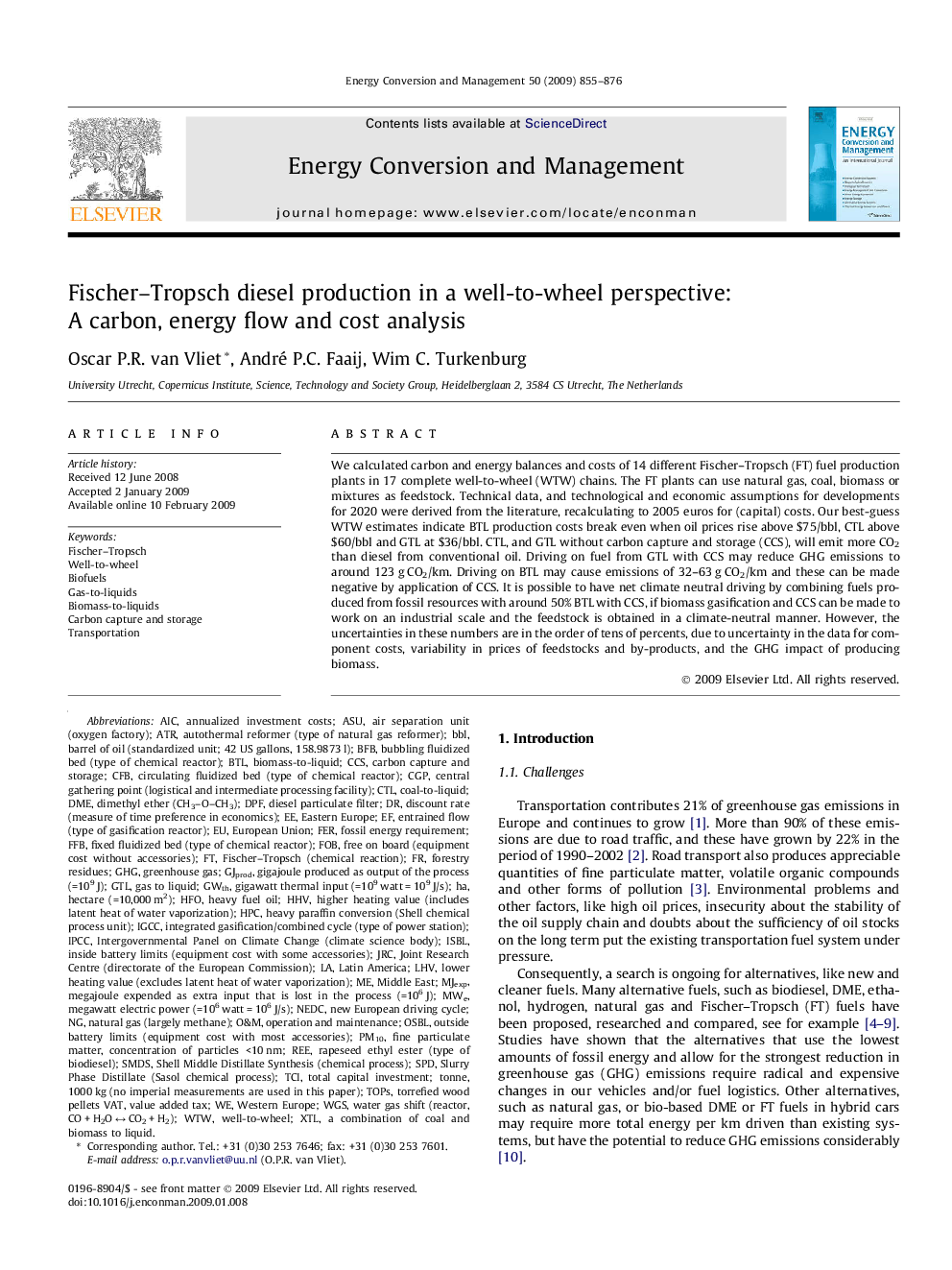| کد مقاله | کد نشریه | سال انتشار | مقاله انگلیسی | نسخه تمام متن |
|---|---|---|---|---|
| 766249 | 897091 | 2009 | 22 صفحه PDF | دانلود رایگان |

We calculated carbon and energy balances and costs of 14 different Fischer–Tropsch (FT) fuel production plants in 17 complete well-to-wheel (WTW) chains. The FT plants can use natural gas, coal, biomass or mixtures as feedstock. Technical data, and technological and economic assumptions for developments for 2020 were derived from the literature, recalculating to 2005 euros for (capital) costs. Our best-guess WTW estimates indicate BTL production costs break even when oil prices rise above $75/bbl, CTL above $60/bbl and GTL at $36/bbl. CTL, and GTL without carbon capture and storage (CCS), will emit more CO2 than diesel from conventional oil. Driving on fuel from GTL with CCS may reduce GHG emissions to around 123 g CO2/km. Driving on BTL may cause emissions of 32–63 g CO2/km and these can be made negative by application of CCS. It is possible to have net climate neutral driving by combining fuels produced from fossil resources with around 50% BTL with CCS, if biomass gasification and CCS can be made to work on an industrial scale and the feedstock is obtained in a climate-neutral manner. However, the uncertainties in these numbers are in the order of tens of percents, due to uncertainty in the data for component costs, variability in prices of feedstocks and by-products, and the GHG impact of producing biomass.
Journal: Energy Conversion and Management - Volume 50, Issue 4, April 2009, Pages 855–876